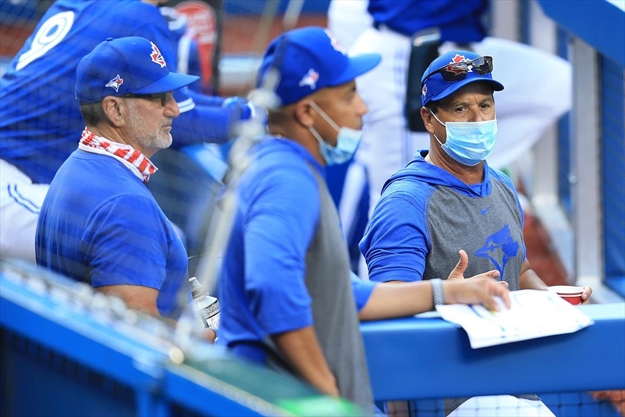The young man is sitting on a Line 2 TTC subway car. He is not wearing a mask, nor is one hanging from his ear or in his lap or within reach. Masked people move to the ends of the car to avoid him.
The woman is wandering around Shoppers Drug Mart as she waits for a prescription. Her mask is pulled down so that it only covers her mouth. No one on staff asks her to pull it up over her nose.
The owner of a hair salon walks freely on every floor without a mask, talking on the phone, on a day when only one customer is booked at a time. The customer is masked. The stylist is double-masked.

Repairmen working hard outdoors cluster on a sidewalk, unmasked, without distancing from people passing by. Pedestrians edge away.
This is just an average day in Toronto in September 2020, seven months after COVID-19 fear became widespread. It is still impossible to go out without encountering people who have consciously decided not to mask. Why has no level of government made mask-wearing mandatory?
The best strategy for anyone worried about illness and death is to never take the TTC — passengers report on social media that they frequently see people, including staff, without masks — only order goods online for home delivery, give up on their hair, and walk out into a street shared with cars.
Some of these decisions are not affordable for some. Others are unsafe. They impose medical risk even on people who have not entered a restaurant or a mall since March. What astonishes me is that wearing a mask is cheap and easy. It is the minimum asked of anyone who leaves their home, and yet some people will not do it — passive aggression at its most manifest.
Others won’t do it even when asked. This doesn’t happen at the LCBO, at least not when I go in to pick up an online order, or even at the much more casual Wine Rack. The nature of the business means that staffers are accustomed to telling drunk or badly behaved customers to leave. “I have developed a backbone,” the brisk young male cashier explains to me when I thank him. “I just tell them they have to wear a mask or they won’t be served.” And they obey, he says.
It would be pleasant to conclude that Canadian courtesy means that generally, people are reluctant to ask others to mask. I don’t ask because it’s physically dangerous for a woman to make a polite request, though not necessarily more dangerous than being in a closed space with an unmasked person.
What a slap to perfect strangers who have done you no harm. It is rude to put people in a position where they have to ask you to do the easiest thing you could possibly do as COVID-19 cases rise steeply in this gentle, rational, consensus-building nation.
Even Mayor John Tory, who invariably sees us at our best, has successfully begged Premier Doug Ford to , given that one drink makes most people imperturbable. (Last call is now 11 p.m. Strip clubs, which apparently still exist, have been closed completely.) Tory quotes his father, who used to say, “Nothing good ever happens after midnight.”
I have thought about this at length for days. Tory’s dad might just have been doing some teenage goading, unless his son was already 42 at the time, but he was right.
Generally speaking, risky decisions have already been made before midnight; everything else is just follow-through. People who were jerks before midnight will work on their jerkdom with passionate intensity in the small hours of the morning. But I’m talking about sober, blinding-light-of-day Toronto, when we knuckle down and get really polite.
Provincially speaking — and I do mean that — Canada is not even at the point of making it mandatory for people to download the official COVID Alert tracking app, partly because some people don’t own cellphones, or carry them everywhere, or have a cellphone that accepts the app. It’s excusable. But a face mask?
Children wear masks in kindergarten. They don’t like it, but they do it. It’s a basic.
Life’s basics are few. They range widely but begin with the specific and obvious. First comes the morning shower, eating with utensils, keeping a minimal distance in crowds (unmeasured but learned) and saying, “Fine, thanks, how are you?” Up next are laundry particulars, showing up on time, and offering elders your seat. It ends with household dusting standards and car insurance.
Wearing a face mask in public during a pandemic comes before all these stages. It is a lowest common denominator. It is food and shelter, given that shelter means protection from the elements. That means the rougher elements and that means you.
Just put it on. Up a bit. There you are. Was that so hard?
Heather Mallick is a Toronto-based columnist covering current affairs for the Star. Follow her on Twitter:
